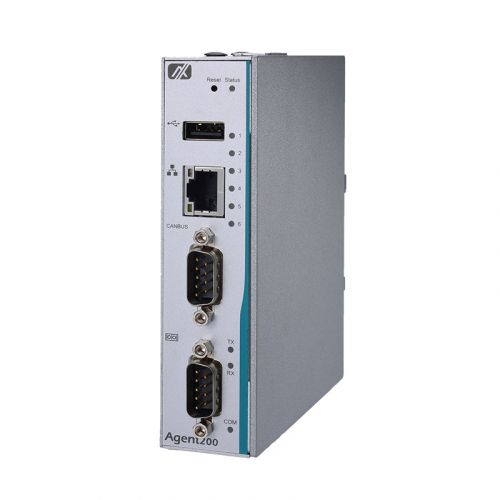What is Industrial Grade PC?
PCs built with an emphasis on industrial purposes, especially for the production of goods and services with several military-grade components to withstand harsh industrial conditions refer to Industrial Grade PC. They are designed in a form factor between that of a nettop and a server rack.

The most significant aspect of an Industrial Grade PC is its precision standard. While they are generally costly compared to consumer electronics, these PCs have higher dependability. In addition to that, they also consist of complex instruction sets such as x86 as opposed to more commonly used ARM instruction sets. Also, industrial computers are waterproof and sealed with resistance for shock and vibration. It makes those computers perfect for oil rigs, plants, factories, and ports.
Industrial Computing Applications
Industrial PC’s have a wide array of applications far beyond automation and programming. Mentioned below are some of the focused application areas of industrial computing.
Embedded Computers
Embedded computers offer monumental levels of performance with efficient power consumption and are extremely powerful. They are used mainly for data computing and remote monitoring in industries. Besides computational prowess, embedded computers also aid in the integration of hardware and software.
Designed with small footprints and multiple I/Os, they are ideal computing solutions for tight spaces and reduce maintenance costs. Moreover, these computers are also noiseless as they use a fan-less, passive cooling system.
Embedded Boards
An alternative to huge mainboards embedded boards come in a more compact size. They include a wide product range of several form factors such as EPIC, 2.5-inch, 3.5 Inch, Pico ITX and PC/104. The main reason for the compact size of embedded boards is the reduction of heat and efficient CPU power consumption to enable fan-less operations in embedded computers.
Embedded Peripherals
Embedded peripherals assist in the integration of an array of modules for power supply, graphic cards, riser cards, IPMI and TPM to facilitate robust processing and computing. They help system integrators to design simple and easy to operate industrial systems.
Chassis
Chassis in industrial PCs offer a diverse range of connectivity operations for single boards computers and motherboards. They are available in innumerable configuration based on the type on enclosure and components such as Server Chassis for Server boards and Server systems. The most critical chassis in industrial computing is IPC chassis series responsible for ensuring performance to run demanding applications.
Industrial Automation and Control
Automation in industrial computing is the user to control, optimize and schedule production process in an effective manner. High processing automation and control in industrial PCs aid in potential decision-making factors for manufacturing leading to an improvement in product quality and output.
All of these with an added advantage of lower costs and better safety. The applications of industrial automation and control are evident in factories and oil rigs. They are also used extensively in transportation companies and utility business.
Factory Computers
Advancement in industrial grade computing technology has led to optimal integration between machines and processes. Factory computer provides capable equipment that can deliver high levels of output with lowest production costs.
Mobile Medical Applications
Some of the biggest drawbacks of consumer-grade computers are that they are not prone to shocks and drops. As opposed to industrial-grade computers which can be used in any medical setting especially the bumps evident in ambulance rides.
Industrial PCs offer better durability perfect for demanding environments such as ambulances, hospitals, and health-care industries. Moreover, they are the ideal form of computing devices for medical mobile carts used by medical personnel in emergencies in the field.
OEM Computer
A plethora of OEMs uses industrial PCs as controllers for their hardware. The primary thing an OEM uses industrial computing for is the function of data collection/management. OEMs also control and operate their equipment via hardware or software developed by the industrial PC’s manufacturers.
Outdoor Computer
The main advantage of an industrial PC is its resistance to harsh weather conditions, extreme temperature variations and immense frequency of shocks. Their reliability to be mounted atop a golf-cart or forklift and still getting the job done makes industrial computing a reckoning force. Outdoor computers using industrial-grade PC components are built for the below purposes:
- Regardless of the conditions, maintain intensity and reliability
- Extreme reliability in any weather or climate, such as snow, rain, dust, or humidity and adaptable to fluctuating temperatures and extreme heat
- Completely waterproof and resistant to shocks and vibrations.
Rack Mount Computers
Rackmount computers are brilliantly versatile and support an array of expansion routines for cooling in the most strenuous cards. Thus, making rack mount computers highly favourable in various categories of add-on cards with extensive configuration settings for the drive.
A few key benefits provided by rackmount industrial PCs are as below:
- A versatile size and long-term warranty of components
- Processing architecture for efficient cooling and powerful performance
- Robust industry grade components




